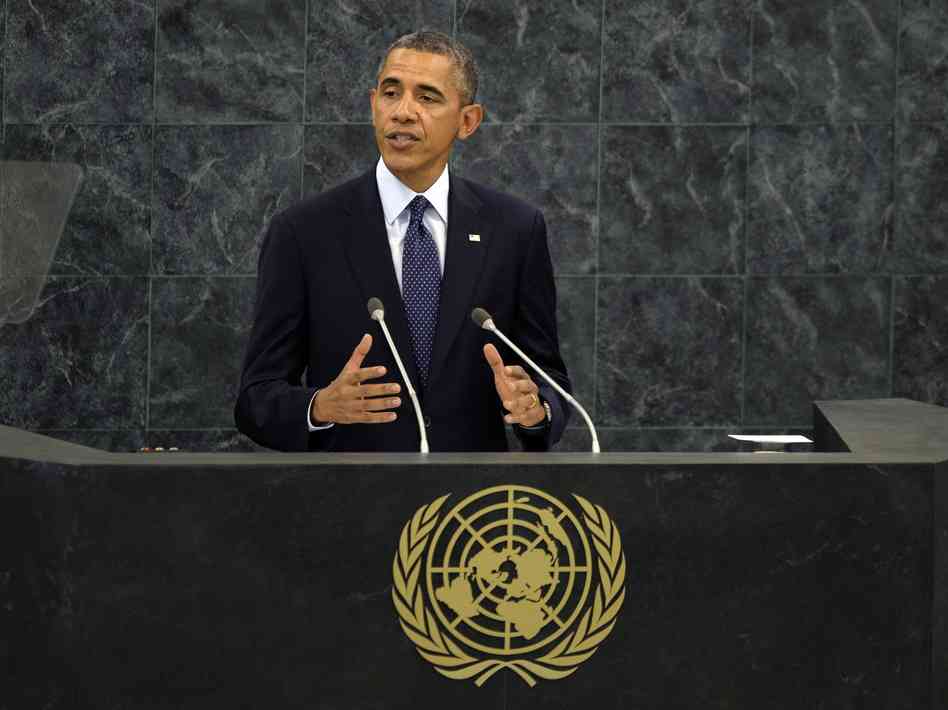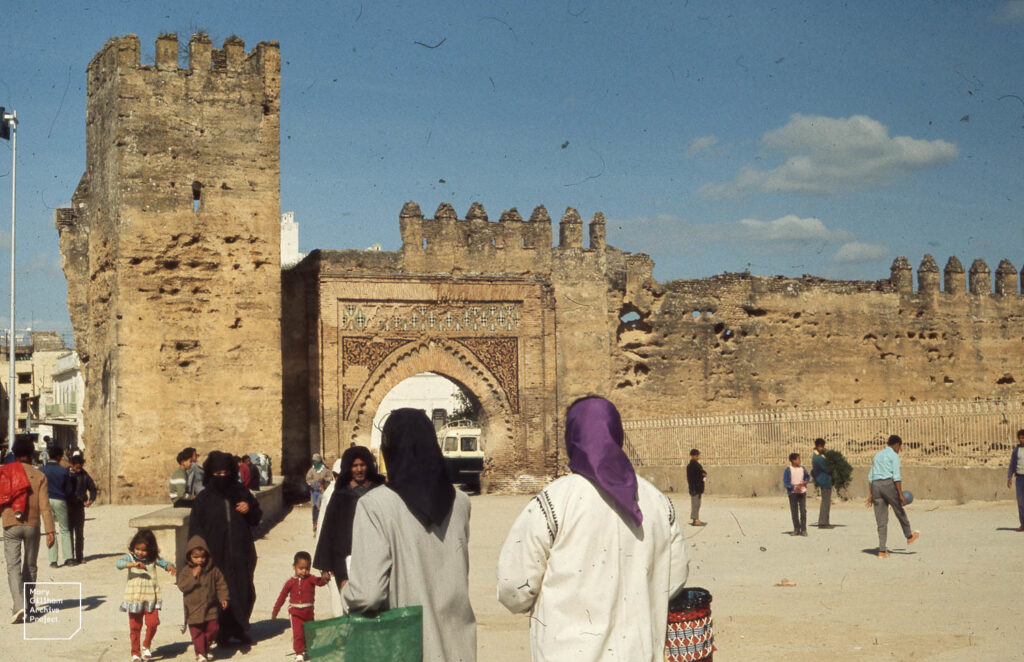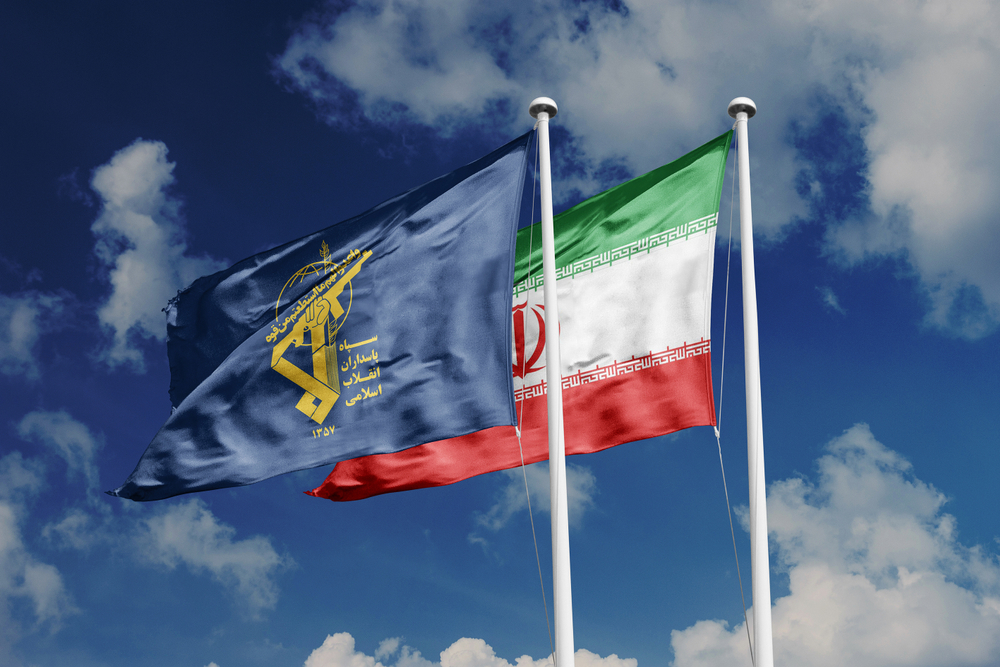UPDATES
Changing US Mideast Policy/ More on Negotiating with Iran
November 1, 2013

Update from AIJAC
Nov. 1, 2013
Number 11/13 #01
The US Administration has announced a new more “modest” approach to the Middle East, heralded first by President Barack Obama in a speech at the UN last month, and laid out in more detail by National Security Advisor Susan Rice in interviews over the weekend. The new policy focuses primarily on three issues – the Iranian nuclear program, Israeli-Palestinian peacemaking and Syria. This Update includes analysis of the significance and prospects of this new policy – as a well as a new discussion of the Iranian negotiations from three senior, veteran American policy experts.
First up is a look at the new American policy from veteran columnist and correspondent Doyle McManus. MacManus reviews the travails the Obama Administration has suffered in the region since coming to office and describes the new policy as sounding a “lot like disengagement” (though he does note the Administration strongly denies this). But Doyle argues that while trying to match goals to the resources the US public are willing to commit is sensible, the policy is not likely to work for the simple reason that “the region reliably produces one crisis after another, whether we give it careful attention or not.” He goes on to argue that publicly announcing a policy that sounds like disengagement is only likely to make this worse – and to read it all, CLICK HERE.
Making some similar arguments is leading Israeli journalist/blogger and former Washington correspondent Shmuel Rosner. Rosner argues that there is so much that is vague and ambiguous about the supposed new policy – not least because it is highly difficult to define what the “old” policy it is trying to replace consisted of. Like McManus, he also argues that by signalling a loss of interest in the region, given the US role as generally a stablising force there, the new supposedly more “orderly” policy is likely to actually prompt more disorder there. For his complete argument, CLICK HERE. Plus, author and commentator Lee Smith discusses how the new American approach will likely negatively affect the Israeli-Palestinian peace process.
Finally, three veteran senior American officials, Dennis Ross, Eric Edelman and Michael Makovsky, offer their collective advice on how to negotiate with Iran and what a successful nuclear deal should look like. They stress that it must be remembered that diplomacy is not an end in itself but only a means to an end – preventing a nuclear-capable Iran – and that time to achieve that end is very short. They lay out five conditions for a deal – including Iran meeting its legal obligations, strict inspections, and denying Iran the ability to make a nuclear bomb by severely restricting the amount of enriched uranium it is allowed to possess and the number of centrifuges it can have. For the rest of what they have to say, CLICK HERE. Also, here is a more detailed argument why time is of the essence in these negotiations from Washington Institute experts Simon Henderson and Olli Heinonen.
Readers may also be interested in:
- New claims that Iran can convert its enriched uranium into a bomb core within weeks from nuclear experts – here and here.
- Isi Leibler writing about the increasing radicalism of Turkish PM Recep Tayip Erdogan.
- Some examples from the many stories and comments now appearing at AIJAC’s daily “Fresh AIR” blog:
- Sharyn Mittelman summarises the reactions – including AIJAC’s – to the apparently racially motivated bashing of five Jews in Sydney’s Bondi last weekend. Other valuable comments on this incident come from former AIJAC staffer Arsen Ostrovsky, Mia Freedman, and Sydney academic Fergal Davis.
- Ahron Shapiro’s third blog on the Yom Kippur War – this time on Australian public policy in 1973.
- Daniel Meyerowitz-Katz on the difficult situation of Jerusalem’s Arab minority.
- Video of AIJAC Guest Prof. Efraim Inbar , director of Bar Ilan University’s BESA centre, speaking in Melbourne recently on the current Middle East turmoil.
Turning away from the Mideast
The U.S. risks frightening its friends and emboldening its enemies. And the crises don’t stop.
By Doyle McManus
Los Angeles Times, October 30, 2013
Two years ago, when the Arab Spring was in bloom, President Obama declared that promoting democracy in the Middle East would be “a top priority” for the United States. “We know that our own future is bound to this region by the forces of economics and security, by history and by faith,” Obama said.
That was then; this is now.
The ensuing years, alas, produced little more than a list of broken dreams. Egypt’s democratic revolution was hijacked by the Muslim Brotherhood and a military coup. Libya’s turned into a chaotic mess. Syria’s turned into a civil war.
And Obama, sadder but wiser, has downsized his ambitions.
At the United Nations last month, he said the United States would now focus on its “core interests,” including the fight against terrorism and the security of oil supplies. Democracy didn’t make the list. Neither did another goal: helping Syria’s rebels push Bashar Assad from power.
Not only that, the president plans to spend less time on the Middle East altogether. “We can’t just be consumed 24/7 by one region, important as it is,” Obama’s national security advisor, Susan Rice, told the New York Times last week.
That sounds a lot like disengagement.
But that’s the wrong way to think about Obama’s shrinking priority list, administration officials insist. “It’s not disengagement,” an administration official told me this week. “It’s a question of what’s doable.”
Last summer, he explained, Obama asked Rice to draw up a list of core interests in the Middle East and to pare it to a minimum, seeking “high-impact moves that could have a transformative impact” in the remaining three years of Obama’s term.
What’s on that high-impact list? Exactly two items. One is Israeli-Palestinian peace talks, although everyone in the administration recognizes they are a long shot. (They probably wouldn’t be on the list if Secretary of State John F. Kerry hadn’t insisted on taking them on.) The other is nuclear diplomacy with Iran, which has been a priority all along because the only alternatives to successful negotiations are nuclear-armed mullahs or war.
At least there are, after a few rounds of talks with Iran’s new president and foreign minister, optimists in the administration who are permitting themselves the luxury of thinking a big strategic opportunity might have arrived.
“Real progress there could … start to reshape the game,” the official told me — not only a halt to Iran’s nuclear program but a wider opening to normal relationships between Iran and the West.
What’s wrong with this picture?
Obama is surely right to reduce U.S. goals to match the resources he and the American public are willing to commit. And nurturing democracy in the Arab world was always going to be a long and bumpy pursuit. Democracy advocates weren’t surprised when the president publicly downgraded their agenda; they had watched U.S. aid shift from civil society programs to security for more than a year.
But subtracting high-level attention from the Middle East isn’t likely to work. The region reliably produces one crisis after another, whether we give it careful attention or not. The weapons of mass destruction, the civil wars, the terrorists and the oil will still be there.
And announcing we don’t care as much as we used to — even if it’s mostly an attempt to avoid blame when things go wrong — is even worse. When the headline is about the U.S. walking away, it frightens our friends and emboldens our enemies, even if the fine print is more nuanced.
Across the Arab world, disheartened democrats have already concluded that the United States has abandoned their cause. Saudi Arabia and Israel — strange bedfellows — worry that Obama has gone soft on Iran. In Egypt, both sides — the military regime and the Muslim Brotherhood — have concluded that the president doesn’t like them. And in Syria, opposition fighters we once supported are migrating to the jihadist camp, where military supplies are more reliable.
From the start, Obama’s central challenge in foreign policy has been to define what it means to be a superpower in an era when Americans want to spend less money and fight fewer wars. That’s produced an oscillation between enthusiastic engagement — the president’s “outstretched hand” to the Muslim world in 2009, his endorsement of the Arab Spring in 2011 — and bouts of cold-shower realism. The mood swings may have been unavoidable, but they have made U.S. behavior unpredictable and have rattled our allies, many of whom sit atop fragile regimes.
Now Obama and his aides have placed a lot of their remaining chips on the nuclear negotiations with Iran. If those talks fail — and even if they succeed, come to think of it — there will be a lot of repair work to do.
Doyle McManus, Washington columnist for the Los Angeles Times, has reported on national and international issues from Washington for more than 25 years.
Back to Top
————————————————————————
The Irony of an Orderly Middle East Policy
Shmuel Rosner
Jewish Journal, October 28, 2013
Modesty isn’t always a virtue. Thus, when the US plans to have “a more modest strategy” for the Middle East, as the New York Times reported yesterday, the mere shift from – well, we still need to determine from what – to a policy that is modest is not in itself a change for the better.
The report explained that a “policy review, a kind of midcourse correction,” initiated and headed by the new National Security Advisor Susan Rice “has set the United States on a new heading in the world’s most turbulent region”. Yet it doesn’t quite specify how the new policy is going to be different from previous policies. The administration– and this we already learned from President Obama’s UN speech- will focus on Iran’s nuclear program, the Israel-Palestine negotiations, and Syria. Other issues will take “the back seat”.
As Rice and her group devised the new course, they essentially did two things: reduced the workload, and picked the top priorities on which to keep working. Whether a reduction was necessary depends on the administrations’ other priorities domestically and abroad. Obviously, the Obama administration wants to do more of the other things and less of the Middle East thing. So it left just three subjects on the table, which might seem arbitrary. Why three and not two – or four? Or six? Is it three because that’s the number that is low enough for the US to feel that it has time to deal with other things? Is it three because of a compromise (perhaps some said two and others said four and the result was three)? I can imagine Secretary of State John Kerry insisting that his pet project, Israel-Palestine, should remain a priority, while no one was fighting for Egypt to be kept on the agenda (the NYT piece actually hints that’s how it happened).
Hopefully these three were picked because the administration believes that these are the three that can’t be abandoned. That is, the administration decided that neglecting Egypt is possible, while neglecting Iran isn’t possible. Neglecting Bahrain would not end in disaster, while neglecting Syria is too dangerous at this stage.
Of course, the problem with such decisions is that they are all subject to changes dictated by events on the ground. Egypt might not seem urgent today, but can be urgent tomorrow. The peace process is already under way and it would be a pity to suddenly cut the cord and drop it – but since most observers see little hope that the process will end with an actual agreement, there is still the question of whether it deserves to be included in an agenda that has just three items. And what about Saudi Arabia? The Saudis just demonstrated their dissatisfaction with American policies by refusing a seat on the Security Council. Are they being sent to the “back seat”? Or maybe, by taking care of Iran, Palestine, and Syria the US is doing what the Saudis expect it to do? And what about Turkey – was the policy towards Turkey on the table as well? Is Turkey part of the Middle East?
It is also not exactly clear what the Obama team means by having “a new heading in the world’s most turbulent region”. When a “new” course is devised an “old” course is abandoned. But the “old” course is not an easy one to define. Is the administration abandoning a chaotic policy (like the one in Syria) in exchange for a more orderly policy? Is it abandoning a naïve policy in exchange for a more realistic policy (the peace process might prove the opposite)? Is it abandoning a hands-on policy in exchange for a more aloof position (but it was leading from behind long ago)? Will it change course from being tough to being more accommodating (on Iran)? Will it replace shifty policies with a more stable course (if so, why the shifting on Syria rebels)?
The Middle East has a tendency not to follow the script written for it in Washington – as I’m sure the smart Obama advisors all know. In fact, by stating its priorities the administration just gave many Middle Eastern players an incentive not to follow the script: they might decide to do this because they just got the message that the US doesn’t care what they do – or might decide to do this because they want the attention and the care that the US is denying them.
Thus, the only clear message that was sent to the region by this recent report – and it looks like a report that is based on administration briefings – is the following: the US wants less involvement. The Obama administration decided to abide by public opinion polls and stay away from Middle East affairs as much as it can. On this issue it decided not to lead, not even from behind, neither the region nor the American public. No doubt – leaders in this region will interpret the new policy as one of further decline, and will presume a weakening American presence. The US was a force for stability in the Middle East – of course, it wasn’t always a force for short-term stability, but it had always intended for the region to eventually reach stability – and it is now slowly losing interest.
There’s a certain irony ingrained in this process: as the administration attempts to have a more orderly policy, it is willing to let the Middle East drift into a less orderly state of affairs.
Back to Top
————————————————————————
How to Negotiate with Iran
Dennis Ross, Eric Edelman and Michael Makovsky
Los Angeles Times, October 29, 2013
A deal struck for its own sake on Tehran’s nuclear program would be worse than no deal at all.
This month in Geneva, at the first negotiations over its nuclear program since the election of President Hassan Rouhani, Iran took an unprecedented step: It negotiated. For the first time, Tehran presented an actual vision of the endgame for the talks with six world powers, and how to get there. However, contrary to expectations, it offered no concessions, leaving serious questions about Iranian purposes. With another round of talks scheduled for next week, U.S. negotiators would do well to follow principles that signify the core interests at stake.
The most pressing national security threat facing the United States remains preventing a nuclear-capable Iran. The preferred way to achieve that objective is through a diplomatic agreement. But diplomacy can only be that — a means to an end.
As Secretary of State John F. Kerry has said, a “bad deal is worse than no deal.” A deal struck for its own sake would still allow for a nuclear Iran; undermine the legitimacy of any subsequent U.S. attempts or, much more likely, Israeli attempts to arrest Iran’s progress by military action; discredit and compromise U.S. credibility; and weaken, if not destroy, the decades-old international nonproliferation regime.
Therefore, the United States should only pursue an agreement within certain parameters, to ensure the deal actually furthers the interests of the U.S. and its allies. As we explain in a new JINSA Gemunder Center report, there are six such principles that should guide the negotiations with Iran.
First, Iran must resolve outstanding international concerns. The International Atomic Energy Agency has repeatedly complained that Iran has not been forthcoming about its nuclear activities. Indeed, the IAEA in 2011 expressed its “deep and increasing concern about the unresolved issues regarding the Iranian nuclear program, including those which need to be clarified to exclude the existence of possible military dimensions.” Iran must quickly address all outstanding IAEA concerns as part of any deal.
Second, Iran must adhere to international legal requirements. The IAEA’s repeated condemnations of Iran have spurred the U.N. Security Council to pass six resolutions requiring Tehran to “suspend all enrichment-related and reprocessing activities” and “to implement without delay all transparency measures as the IAEA may request in support of its ongoing investigations.”
Iran has repeatedly disputed the legality of these resolutions, claiming the Nuclear Nonproliferation Treaty, or NPT, grants it a right to enrich uranium. But no such right exists. Iran’s defiance and distortion of international legal demands threatens to unravel the nonproliferation regime. To preserve it, negotiators must reassert the Security Council’s authority and the NPT’s true purpose.
Third, deny Iran nuclear weapons capability. The main concern about Iran’s nuclear program is that it is on the verge of producing enough weapons-grade uranium for a nuclear device. An acceptable deal must not just freeze but tangibly roll back its ability to do so. This will require limits on size and enrichment level of its uranium stockpile, number and type of operating and installed centrifuges, design of enrichment facilities and possible plutonium production at the Arak heavy-water reactor.
Fourth, impose a strict inspections regime. Just because Iran agrees to a deal does not mean it will stick to it. It has tried to build each of its current enrichment facilities covertly. To prevent it from attempting to do so again, negotiators should require Iran to agree to more rigorous monitoring of its nuclear program.
Fifth, negotiate from a position of strength. Too often, Iran has used negotiations to extract concessions, undermine international resolve and play for time. In the few instances it has compromised, it has been because of the threat of force. The success of these talks will hinge on Iran understanding that there will be very real and damaging consequences if negotiations fail.
This will require at least these U.S. actions: Intensify sanctions and incentivize other countries to do the same, issue more forceful and credible statements that all options are on the table, initiate new military deployments and make clear the support for Israeli military action if conducted.
Finally, do not waste time. Iran will likely attain an undetectable nuclear capability by mid-2014, and perhaps even earlier, leaving scant time to both negotiate and verifiably implement a deal. It appears that Iranian Foreign Minister Mohammad Javad Zarif may have offered a timeline at Geneva for wrapping up negotiations. But given Iranian nuclear progress over the last 18 months and earlier unexplained activities, negotiators ought not accept a schedule that stretches beyond the point when it becomes impossible to prevent a nuclear Iran by other means. Implementing and making known a strict deadline for talks can dissuade Iran from using diplomacy as a cover while sprinting for the bomb, and reassure Israel so it does not feel compelled to act alone.
Negotiators should hew to these principles to avoid mistaking rhetoric for action, and must walk away from any agreement that violates them.
Dennis Ross is counselor at The Washington Institute and former senior Middle East advisor to President Obama. Eric Edelman was undersecretary of defense for policy in 2005-2009. Michael Makovsky is chief executive of JINSA and served in the Office of the Secretary of Defense in 2002-2006.
Tags: Iran





